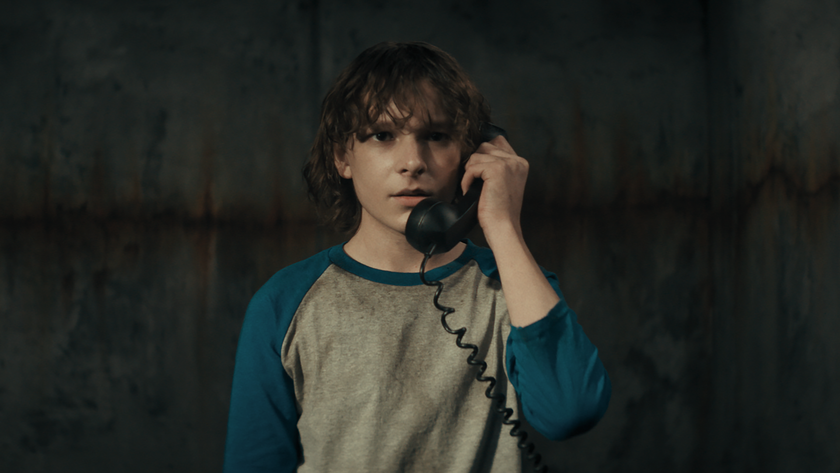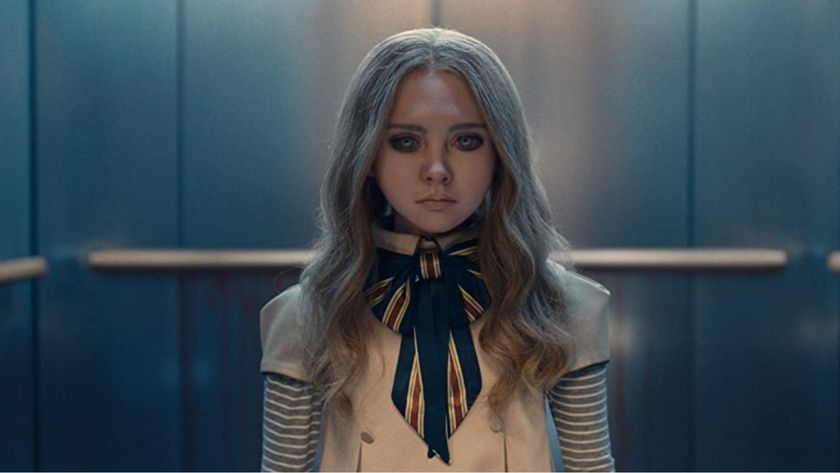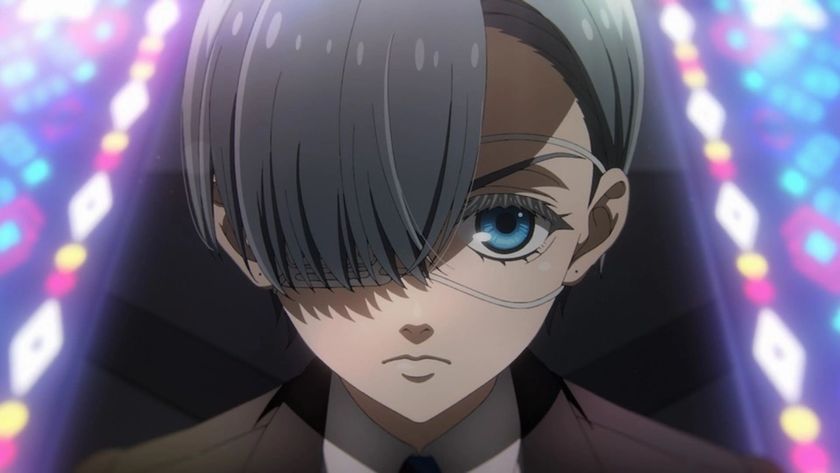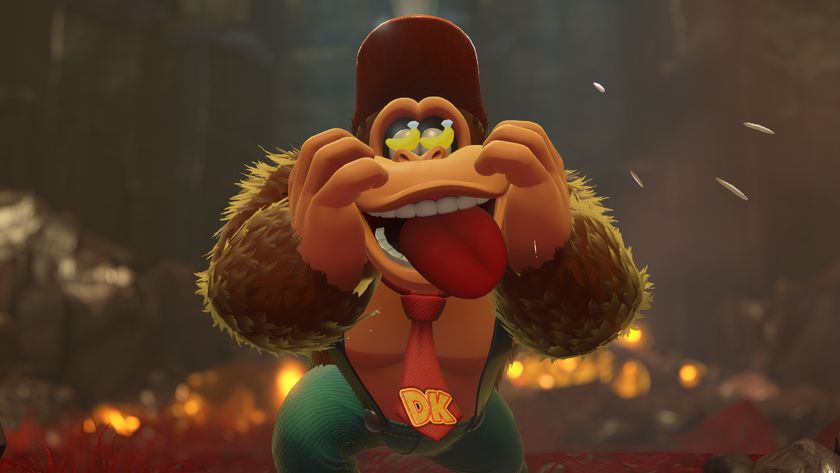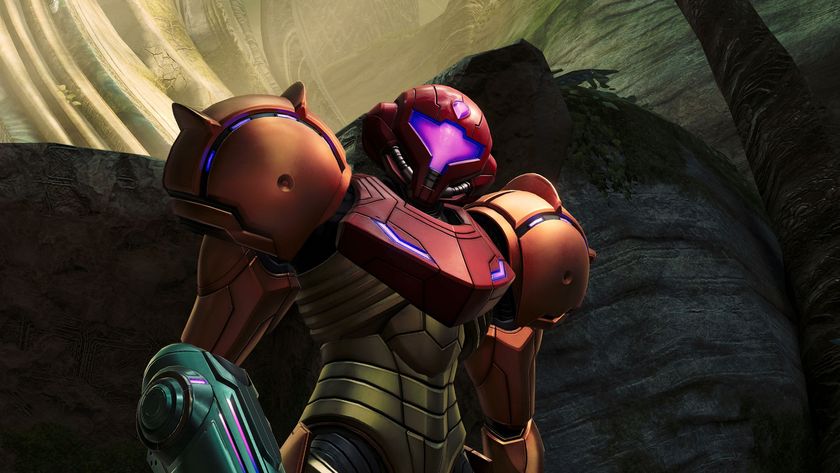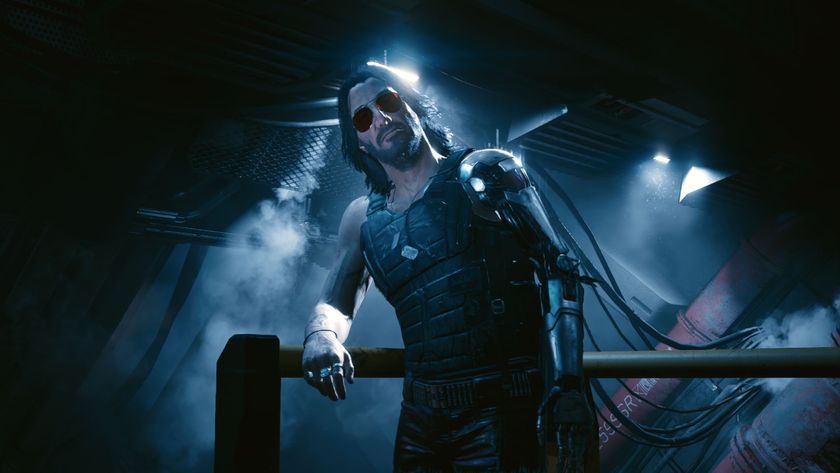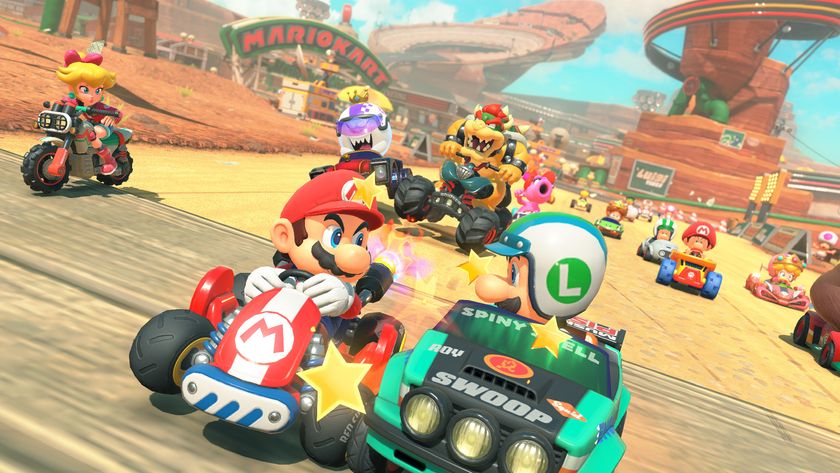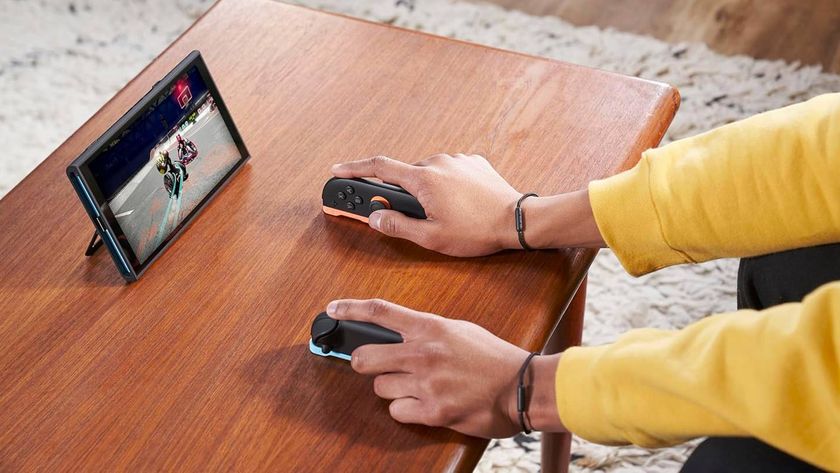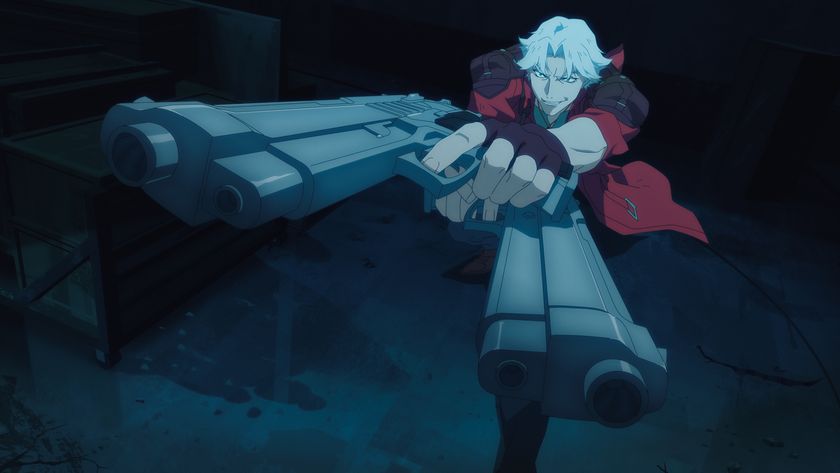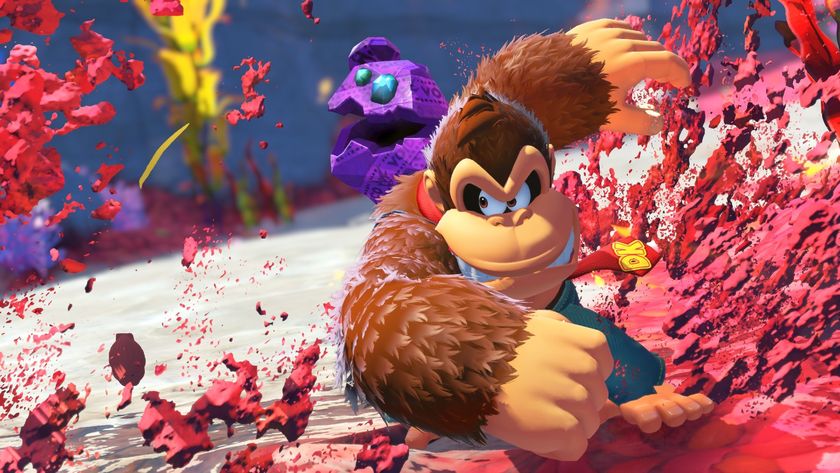The Total Film Interview - Matt Dillon
The teenage rebel turned no-nonsense star shows his true worth in the blistering Crash. There’s something about Matt Dillon, Hollywood’s ultimate outsider.
Can we get another cappuccino, man? It’s my last vice.” Never one to let a man drink alone, Total Film joins Matt Dillon for another hit – double shot, easy on the milk – before stepping onto a sun-kissed New York terrace. Dillon stares over Hudson Bay, dark eyes squinting beneath heavy ’brows.
“I’ve been looking after myself, getting in shape,” he says, voice soft and scratchy. He looks good – lean, relaxed, young. He also looks embarrassed. “It’s not like I’m down the gym every day, y’know? Just everything in moderation. Don’t have that chocolate sundae. Store it up and then have a really fucking great chocolate sundae...” No personal trainers or newfangled diets for this guy.
Dillon has a similarly no-bullshit attitude to showbusiness. For him, it’s all about the work. Fame? Money? Parties? None of it matters if your CV comprises of piss-takes and piffle: “Hey, no one ever comes to your funeral and says, ‘He was really famous’ or ‘He made lots of money’, right?”
Born in 1964 in New Rochelle, New York, Dillon tasted all the fame he could stomach in his teens. It started when he cut class to land a leading role in kids-tear-up-the-town drama Over The Edge (1979). Several ‘yobby yoof’ roles followed (Tex, The Outsiders, Rumble Fish – all SE Hinton adaps), his brooding looks and cocky strut tagging him as a teen heartthrob. He hated it. Desperate to escape the stereotypes – “dumb”, “pretty”, “thug” – he spent the rest of the ’80s looking for a breakout role. Drugstore Cowboy (1989) was it.
The ’90s, like the late ’80s, were uneven, Dillon trying his hand at comedy (Singles, To Die For, In & Out) in between scoring low-key dramatic hits, critically if not commercially (The Saint Of Fort Washington, Beautiful Girls). For each box-office bull’s-eye (There’s Something About Mary, Wild Things) there was a broken arrow (Mr Wonderful, Frankie Starlight). But Dillon wasn’t inspecting the figures. He wanted only to “grow” – as an actor, as a man – swerving the chance to head up Independence Day (“Will Smith’s part was written for me”) to instead travel south east Asia. His journey, physical and spiritual, was funnelled into poignant directorial debut City Of Ghosts (2002).
For Dillon, life’s about good friends, good times and good work. Which brings us to Crash and Factotum, the 41-year-old actor staking a claim as the most underrated actor of his generation as he plays, respectively, a racist cop and an alcoholic odd-jobber/struggling author. Hell, even Herbie: Fully Loaded fits the pattern: “I was cynical but the script made me laugh out loud.”
Just don’t expect his star to rise and his paycheques to rocket. Dillon would hate that. And so would we.
Sign up for the Total Film Newsletter
Bringing all the latest movie news, features, and reviews to your inbox
Your character in Crash is a racist cop and self-confessed “prick”. But there’s more to him than that, right?
His personal life is a mess. We see his relationship with his father, so we get a sense of where his bitterness comes from. I gave him a backstory: he was married but not any more; he’s a failed husband. He’s now taking care of his father and his personal life is unravelling. He has no control over any aspect of his life except his job, which he has supreme control over. He never has to raise his voice ’cos he’s in command.
You put in the research, rolling with the LAPD...
Yeah. Unfortunately, this story is accurate to a certain segment of the cops, y’know? Not just the LAPD but police in general. This kind of shit happens in America. But it was funny... doing ride-alongs with the LAPD dispelled some of my own prejudices. I used to get this feeling of anxiety when a patrol car pulled up beside me. Now I realise a lot of cops are just regular guys trying to get by. They do a difficult job on a modest salary.
Did you end up in any hairy situations?
There was one incident but it was pretty comical. They called in this stolen car and, by the time we got there, six cops had this guy on the ground. He’s yelling, “It’s my car!” Turned out he was drunk the night before, forgot where he parked his car and reported it stolen. Next morning he remembers where he put it, climbs behind the wheel and BOOM, we’re all over him.
Your character is both despicable and heroic. Does he find redemption?
It’s tough, man. Life’s messy and some people are more damaged than others. I don’t think this guy is redeemed but he’s forced to address his belief system, to scrutinise his values and attitudes. It’s happened to all of us: I’ve had strong feelings about somebody or some group only to have it turned upside down on me. It’s part of the human experience.
You’re attracted by spiritual growth. It’s there in your directorial debut, City Of Ghosts...
Yeah, Jimmy Cremming [Dillon’s character] is ready for change. He starts the movie living a dishonest life, stealing from people. By the end he’s giving, y’know? I wanted to depict that spiritual growth in a way that wasn’t too heavy-handed.
Weren’t you on a similar journey at the time?
Jimmy was dissatisfied spiritually and so was I.
You were raised a Catholic...
I’m glad I was born a Catholic, it’s part of who I am. But making a film in Cambodia... I wouldn’t say I’m now a Buddhist, but I respect Buddhism. I think it’s a rational religion – the simple idea of staying on the middle path, keeping the balance. I’m no longer a practising Catholic. I think there’s some good in most faiths.
Do your beliefs inform your attitude to your career?
Yeah, I think so. I’ve never really taken jobs for the money. I mean, you have to go to work, to make hay, but it’s all about what you do in life and taking chances. My life has to mean more than, “How much money can I make?” I have to be true to myself and fuck what anybody else thinks.
Is that why you live in New York instead of LA?
New York’s really good for me; it lends itself to a richer existence. Look, at different times I’ve stayed away from the business, maybe to my own detriment, but I really don’t give a shit. I used to joke that every time I was hanging out in an East Village bar with my friends or traipsing across Italy, I lost a job. But you can’t sit by the phone, man. Life’s not a dress rehearsal.
Is it strange to look back at The Outsiders? You headlined a cast that included Patrick Swayze and Tom Cruise...
I was famous before all those guys. I was the second youngest in the cast but I was a screen veteran, y’know? I wouldn’t swap careers with anyone. I wouldn’t even swap careers with Tom Cruise. He’s had success in a way few actors have, but I wouldn’t swap. Really.
You alluded to your teenage fame earlier. How much truth is there to the Over The Edge casting story?
What story?
That you cut classes, bad-mouthed the filmmakers and ignored them while you combed your hair in the mirror!
It’s been exaggerated. I’ve always said that Jonathan Kaplan [director] is a great embellisher! Yeah, I cut school early to get to the audition, but I combed my hair ’cos it was raining and it was wet. That’s it. And I didn’t mouth off... the director encouraged me to improvise, saying, “Throw in more ‘motherfuckers’, call the cop a ‘bald-headed motherfucker’!” I was all too happy to throw in profanity.
Every Matt Dillon profile refers to your rebellious youth...
I was a little rough but I was still a kid. Let’s just say I smoked cigarettes and experimented with drugs from a young age. I’m not unique in that area.
...But none of them pinpoint where that anger came from. You’re very private when it comes to discussing your homelife...
I was a little wild but I had good parents, hard-working people.
Yet so many of your films see your character butting heads with father figures. Coincidence?
Interesting. I always got along with my parents – I was just so rebellious that I didn’t care what they said. [Ponders] I lost so many of my teenage friends to drugs, alcohol and jail. A lot of them died. I’m just thankful that my parents weren’t apathetic. I recognise that from all the kids who went down: their parents were apathetic.
Drugstore Cowboy saw you grow up on screen. Do you regard it as the watershed of your career?
Yeah. But I always felt I was capable of doing interesting things so, to be honest, it didn’t come as a surprise when people went, “Wow”. Also, it was a great script and a great character.
How did you get a handle on him?
A friend of mine had an older brother who was in recovery, very strung-out. I researched the drug addiction part with him. But you have to remember that the guys in the movie aren’t sniffling street junkies – they were out robbing pharmacies, as much action junkies as dope junkies.
Was it around this time that you also grew up off screen? You were a womaniser as a young man...
That was just part of being an asshole kid. I didn’t think twice about cheating on women. But then I couldn’t do it anymore. I didn’t want the lies and deceit. But hey, I’m not a saint. I’m not married, right?
Your characters in Rumble Fish and Beautiful Girls can’t commit. Art imitating life?
That’s interesting. I didn’t think about those parallels. [Pause] It’s a universal thing, right? Many guys have trouble committing. [Another pause] Maybe it’s the same with the father-thing in my films. The father can be a metaphor for a lot of things: breaking away, disposing with old ideas. Every man has to break away at some point. To grow.
You’ve spent most of your career trying to ‘grow’ as an actor. Is that why you had several cracks at comedy in the ’90s?
I’ve always really liked doing comedy since The Flamingo Kid. I’m not a comic actor per se so I don’t feel the same pressure as the guys who are – they have to be funny all the time. But I enjoy it. The deceitful private detective in There’s Something About Mary was a great character to play!
You got to be funny in Singles. Is that why you took the part, or was it because you’re a music junkie?
[Laughs] Yeah, I love music... but I wasn’t up to date on all those Seattle bands. Cameron [Crowe, director] introduced me to them and said, “Hang out with these guys before you make a decision whether to do the film or not.” So I went out and got drunk with Eddie Vedder. It was like [punches fist into palm three times to indicate beers going down in quick succession]. Those guys were really cool. Really different.
Have you ever been in a band yourself?
Never. I had some guitar lessons before doing Singles, though. I learnt to play a couple of basic things: ‘Pocahontas’ by Neil Young and Jimi Hendrix’s ‘Hey Joe’. I couldn’t play them right. I... what do they call it? ‘Botched it’.
We’ve got to talk about Wild Things. Total Film interviewed Kevin Bacon recently...
Great guy!
...And he told an intriguing story about a scene that got cut from the script. [Dillon laughs] You know where this is going, right?
The ‘other’ twist in the plot!
So did you want to make out with Kev in the shower?
No, I didn’t! Man, I was relieved when they got rid of that scene. Kevin seemed pretty attached to it, though!
Yeah, he seemed disappointed that it got chopped!
[Shaking head] One twist too many, man, one twist too many. Kevin’s a married man. I’m wondering why he was so eager to do the gay scene? [Laughs]
Wild Things saw you play a blue-collar guy in a rich man’s world. Ditto The Flamingo Kid. Is that what it was like when you first went out to Hollywood?
Yeah. I’ve never felt that comfortable around certain people – country club people. I started acting when I was 14. When I went back to school I was three months behind so I ended up hanging out with the misfits. Know what I mean?
Sure. It shaped you. Of course, Charles Bukowski was the king of the misfits. Did you read his stuff growing up?
I read Factotum and every other novel and short story he wrote when I was in my early 20s. I discovered his poetry as I was preparing to do the film. It’s incredible stuff, really beautiful. He was an everyman, a voice for all the working poor and all the lost souls hanging out in bars. There’s something really noble about that. But here’s the thing: he showed up everyday, working and taking chances and making sacrifices. He was talented but he was disciplined. People see that Bukowski drank a case of beer a day, whiskey and fortified wine, and they think, “I can do that and be a great artist.” Well, the graveyard’s filled with people who try...
He was also a great lover. Or so he claimed...
He loved women. It was one of his great obsessions. He’s been accused of being a misogynist but I think that’s inaccurate ’cos he was a great lover of women. Yeah, he depicted them in a very crude manner – alcoholics, perverts, lowlifes – but look at how he depicted himself! He’s hardly gonna depict them as prim housewives, y’ know?
He describes sex in a very aggressive manner, though. “She took it like a knife...”
“...That was killing her!” Yeah, maybe that’s why people think he’s a misogynist!
You have more love scenes in Factotum than normal. After all, you’re the guy who turned down The Blue Lagoon ’cos of the nudity!
I’ve turned down a lot of movies and there were a lot of reasons to turn down The Blue Lagoon. It wasn’t just the nudity. [Leans forward to whisper] It was kind of a silly movie, y’know? Much as I was tempted to go to Tahiti and run around with no clothes on, I had to let that one go.
So were you comfortable with the sex scenes in Factotum?
It was about the character, not selling more popcorn. Sex in films has to be erotic. It has to be done differently or you may as well watch porn to get turned on. Coppola used to joke around, saying, “Every actor I’ve worked with wants to do a scene where he’s pissing. They think it’s a character trait but it’s just a bodily function.” It’s kinda like that. Sex scenes have to be there for a reason.
No regrets, then?
I haven’t got any regrets. Period.
The Total Film team are made up of the finest minds in all of film journalism. They are: Editor Jane Crowther, Deputy Editor Matt Maytum, Reviews Ed Matthew Leyland, News Editor Jordan Farley, and Online Editor Emily Murray. Expect exclusive news, reviews, features, and more from the team behind the smarter movie magazine.
